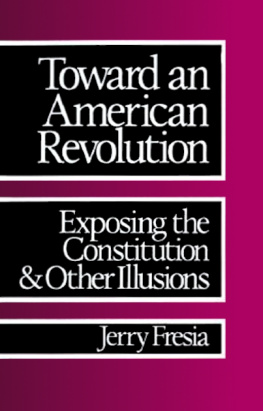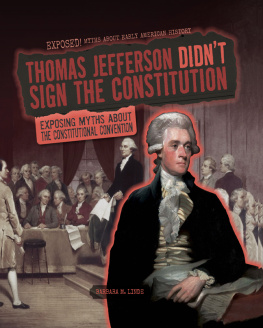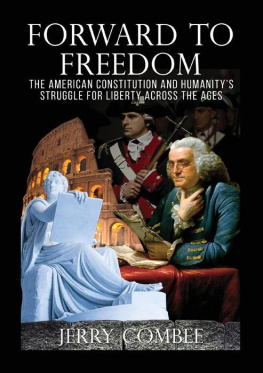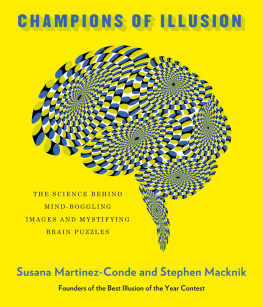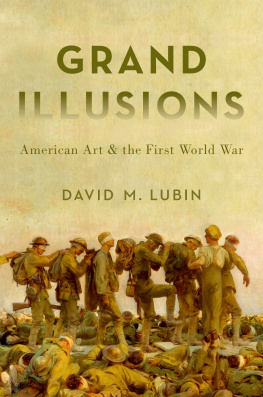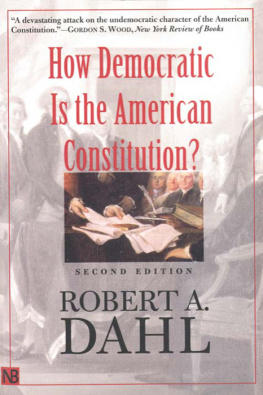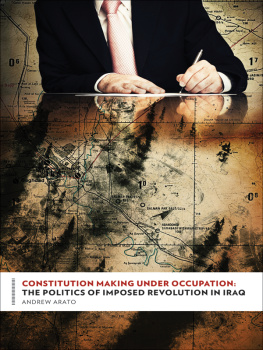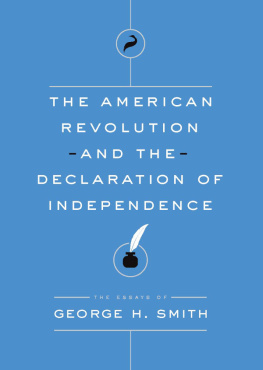Jerry Fresia - Toward an American Revolution: Exposing the Constitution and Other Illusions
Here you can read online Jerry Fresia - Toward an American Revolution: Exposing the Constitution and Other Illusions full text of the book (entire story) in english for free. Download pdf and epub, get meaning, cover and reviews about this ebook. City: Boston, year: 1988, publisher: South End Press, genre: Science / Business. Description of the work, (preface) as well as reviews are available. Best literature library LitArk.com created for fans of good reading and offers a wide selection of genres:
Romance novel
Science fiction
Adventure
Detective
Science
History
Home and family
Prose
Art
Politics
Computer
Non-fiction
Religion
Business
Children
Humor
Choose a favorite category and find really read worthwhile books. Enjoy immersion in the world of imagination, feel the emotions of the characters or learn something new for yourself, make an fascinating discovery.
- Book:Toward an American Revolution: Exposing the Constitution and Other Illusions
- Author:
- Publisher:South End Press
- Genre:
- Year:1988
- City:Boston
- Rating:4 / 5
- Favourites:Add to favourites
- Your mark:
- 80
- 1
- 2
- 3
- 4
- 5
Toward an American Revolution: Exposing the Constitution and Other Illusions: summary, description and annotation
We offer to read an annotation, description, summary or preface (depends on what the author of the book "Toward an American Revolution: Exposing the Constitution and Other Illusions" wrote himself). If you haven't found the necessary information about the book — write in the comments, we will try to find it.
Jerry Fresia: author's other books
Who wrote Toward an American Revolution: Exposing the Constitution and Other Illusions? Find out the surname, the name of the author of the book and a list of all author's works by series.
Toward an American Revolution: Exposing the Constitution and Other Illusions — read online for free the complete book (whole text) full work
Below is the text of the book, divided by pages. System saving the place of the last page read, allows you to conveniently read the book "Toward an American Revolution: Exposing the Constitution and Other Illusions" online for free, without having to search again every time where you left off. Put a bookmark, and you can go to the page where you finished reading at any time.
Font size:
Interval:
Bookmark:
I do not think, for example, that it is too much to suggest that the American vision of the worldwhich allows so little reality, generally speaking, for any of the darker forces in human life...owes a great deal to the battle waged by Americans to maintain between themselves and black men a human separation which could not be bridged. It is only now beginning to be borne in on usvery faintly, it must be admitted, very slowly, and very much against our willthat this vision of the world is dangerously inaccurate, and perfectly useless. For it protects our moral high-mindedness at the terrible expense of weakening our grasp of reality. People who shut their eyes to reality simply invite their own destruction, and anyone who insists on remaining in a state of innocence long after that innocence is dead turns himself into a monster.
James Baldwin, 1953
James Baldwin's warning is not specific to racism. It can and should be made applicable to a more general claim. Racism is one form of domination and subordination and in 1787 domination by a few and the subordination of the many was made the law of the land. A battle was waged by the Framers to maintain between themselves as property owners and common people as non-property owners a political separation which could not be bridged. We call this relationship democracy and it is this vision of the world that is dangerously inaccurate.
This is not a widely held interpretation, to be sure. In fact, most of us believe quite the reverse, that in 1787 a political system of, for, and by the people was given life. It is somewhat odd, however, that the more sympathetic view is so strong. It is odd because many of the same people who accept this view will complain, if given the opportunity, that they feel powerless. How often do you hear people say in one way or another, Voting doesn't really do anything? Or, Why bother, you really can't change anything. Look at the 60s. Or, the famous, You can't change city hall. Most revealing is the fact that those of us who are really outraged by what our government is doing in our name spend quite a bit of time asking the question, But what can we do? This is hardly the refrain of an empowered people who believe that they govern themselves.
A theme which I shall draw out in this chapter is that far from being a government of the people, ours is a government which rests on the assumption that the people, especially when they become politically excited, interested, and alive, are thought of as subversive. Any serious student of political surveillance and repression in this country knows this to be true. But we seem to prefer to protect our moral high-mindedness by permitting elites, virtually at every chance they get, to persist in the lie that it is we the people, and not we the largest property owners, who govern this country. In so doing we risk weakening our understanding of the ways in which our lives are systemically made subordinate to the interests of the rich and politically powerful. And in so doing, we invite our own destruction.
The most familiar part of the Constitution is the preamble:
We the people of the United States, in order to form a more perfect union, establish justice, insure domestic tranquility, provide for the common defense, promote the general welfare, and secure the blessing of liberty to ourselves and our posterity, do ordain and establish this Constitution for the United States of America.
Since the bicentennial year, the preamble appears on postage stamps and is everywhere raised up as evidence of this nation's democratic beginnings. Yet the ordaining and establishing of the Constitution was perhaps one of our history's most un-democratic moments. Remember many common people openly resisted the principles which were to be embodied in the Constitution and most had no idea that the Constitutional Convention meant to scrap the Articles of Confederation.
While the Preamble did not reflect the truth, it did serve two important political goals for the Framers. One is it signaled that the Articles had been replaced by a national system. If the confederation had been left alone, it may have begun We the States. The committee of detail had suggested a preamble which read as follows: We the People of the States of New Hampshire, Massachusetts...and Georgia, do ordain, declare and establish the following Constitution for the government of ourselves and our posterity. However, Gouverneur Morris, who was the chair of the committee of style, went over the entire first draft and gave the Constitution the style that it has today. He was responsible for the preamble's final form. And although it was intended to signal to its readers that a national system had been established, the word national was never used (much in the same way Madison, as slaveowner, saw to it that the word slave was never used).
Secondly, Morris, the undisputed champion of aristocracy, anticipated the broad opposition to the Constitution and sought to begin the document with a little phrase that might give the document broader appeal. There is multiple irony in this. Morris, the great egalitarian phrase-maker, may have had more contempt for the common person than anyone at the convention. The phrase which is most well known and which is used to color the Constitution is legally meaningless and it falsely suggests that the Framers were either common people themselves or identified with them to the degree that they respected, even celebrated their political wisdom. The suggestion is totally false. However, perhaps the greatest irony stemming from this almost mythic phrase is that it was originally coined by the Iroquois, a people against whom the Framers were committing genocide.
For the Iroquois, the concept of the people meant something very different from what the Framers had in mind. Their law and custom provided for the relatively equitable distribution of wealth, universal suffrage, and a confederation of states similar to the one described in the Articles. An observer in 1727 noted, they allow no kind of Superiority of one over another, and banish all Servitude from their Territories. Iroquois leaders were regarded as servants of their people and were generally poorer than the common people, for they affect to give away and distribute all the presents or Plunder they get in their Treaties or War, so as to leave nothing for themselves. The Framers, who approved the enslavement of human beings and who sought to prevent the political participation of the poor, women, and Native Americans, are considered by many as terribly progressive for the eighteenth century.
Following the colonial experience, both the Framers and the common people shared a fear of tyranny or oppressive government and the tyranny of an imperial power which exploited the productive and trade opportunities of its colonies. It is upon this fear that the Bill of Rights rests. The Bill of Rights guarantees individuals protection from the government but it is the kind of protection that individual entrepreneurs, merchants, creditors, property owners, and speculators sought after having escaped the grip of British capitalists. As Staughton Lynd reminds us, The First Amendment was not intended to protect the rights of wage workers...Rather the amendment sought to safeguard the rights of property-owning middle-class citizens to read, speak, meet and publish, prior to the formation of public policy. Therefore, once the Framers had created a government that protected their interests as property owners, it seemed to many of them that a Bill of Rights was unnecessary. Why, for instance, argued Hamilton, should it be said that the liberty of the press shall not be restrained, when no power is given by which restrictions may be imposed?
Font size:
Interval:
Bookmark:
Similar books «Toward an American Revolution: Exposing the Constitution and Other Illusions»
Look at similar books to Toward an American Revolution: Exposing the Constitution and Other Illusions. We have selected literature similar in name and meaning in the hope of providing readers with more options to find new, interesting, not yet read works.
Discussion, reviews of the book Toward an American Revolution: Exposing the Constitution and Other Illusions and just readers' own opinions. Leave your comments, write what you think about the work, its meaning or the main characters. Specify what exactly you liked and what you didn't like, and why you think so.

